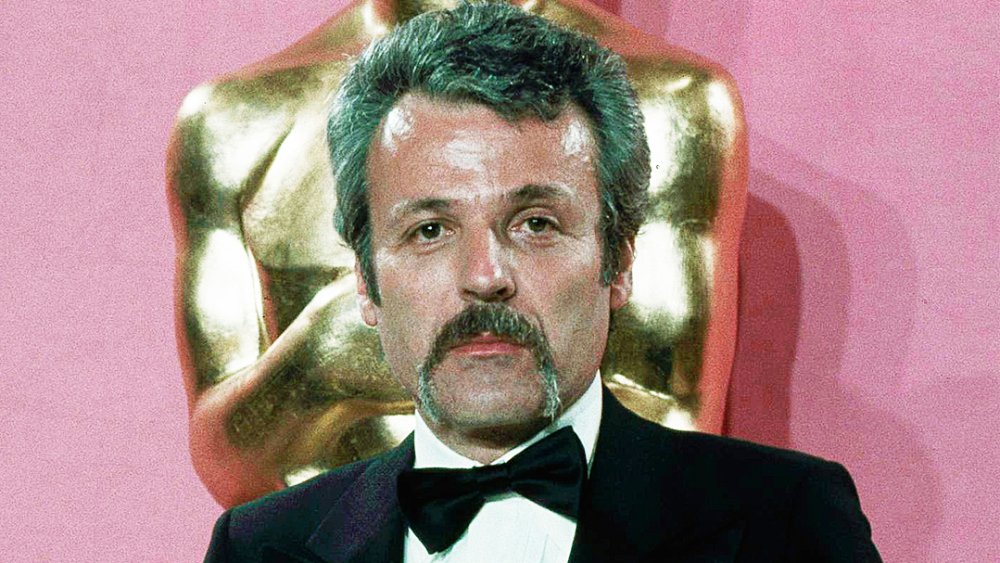Few names have held as much power in the world of screenwriting as that of William Goldman. His book Adventures in the Screen Trade was one of the first I ever read from the viewpoint of the screenwriter and I was captivated by it. The writer is often dismissed in analysis of cinema that tends to favor the director as the sole craftsman of a film, but William Goldman defied that worldview, and produced a handful of the most beloved screenplays of all time. He won the Oscar twice, and you’d be hard-pressed to find a person who thinks either win wasn’t completely deserved. They’re two of the most influential screenplays of their era, “Butch Cassidy and the Sundance Kid” and “All the President’s Men.”
For those two scripts alone, Goldman would have a star on the Screenwriter’s Walk of Fame, but he also penned a little movie called “The Princess Bride,” and few other modern classics. Goldman had a gift with structure, knowing exactly how much to give the audience at any given point in a screenplay and how much to withhold. He also excelled at adaptation, distilling books like Misery and The Stepford Wives to their cinematic essence.
William Goldman was a Chicagoan, born in the suburb of Highland Park in 1931. His interest in writing started with short stories he wrote while in school at Oberlin and Columbia, and his memoir reveals a desire to be a novelist more than a screenwriter. He moved to New York after graduation and lived with his brother James and their mutual friend John Kander. Interesting trivia: All three young men who lived in that apartment would go on to major fame. Kander was half of ‘Kander and Ebb,’ the teams that wrote songs for “Cabaret,” “Chicago,” and more. James Goldman wrote the screenplay for “The Lion in Winter,” which won him an Oscar.

William Goldman wrote novels in the late ‘50s and turned to theatre in the ‘60s (even writing a musical with Kander called “A Family Affair”), but his breakthrough in film came with 1966’s “Harper,” starring Paul Newman, who he would reunite with in 1969 for his first original screenplay, a little movie called “Butch Cassidy and the Sundance Kid,” which won Goldman his first Oscar. The success of that film—for which Goldman was paid $400k, more than any writer at the time—allowed him the freedom to do what he chose. He wrote a book on Broadway, returned to novels, and continued to try and get screenplays off the ground.
In 1973, he wrote the book The Princess Bride, which would become one of his most famous films 13 years later. The next year, he published a thriller called Marathon Man, and sold the movie rights to that for $450k. The ‘70s were his most prolific era, including those two books, for which he would write the screenplays, and scripts for “Magic” (which was also one of his books), “The Stepford Wives,” “The Great Waldo Pepper,” “A Bridge Too Far,” and his second Oscar winner, “All the President’s Men.” It’s telling how influential that film is that the phrase “Follow the money” is often attributed to the real Deep Throat when it’s really a Goldman invention.
The ‘80s were harder on Goldman as a few of his scripts went unproduced, and Philip Kaufman reportedly rewrote his work on “The Right Stuff.” He wrote a number of novels in that decade, brought back to Hollywood to write the adaptations of two of his books, “Heat” (the Burt Reynolds one, not the DeNiro/Pacino one) and “The Princess Bride”. His comeback continued through “Misery,” “Chaplin,” and “Maverick,” and this is a phase of his career in which he became known as one of the most notable “script doctors” in Hollywood, someone who comes in and tightens up a screenplay without credit. He reportedly doctored “A Few Good Men,” “Indecent Proposal” “Dolores Claiborne,” and “Good Will Hunting.”
William Goldman changed the perception of the screenwriter in Hollywood, often refusing to give in to studio or directorial demands—his list of “unproduced screenplays” is as long as the ones that got made. He was an icon in his industry that helped pave the road for well-known screenwriters that would follow him like Aaron Sorkin and Cameron Crowe. Movies wouldn’t be the same without him.
Header Photo Credit: AP Photo/Pedergrass












